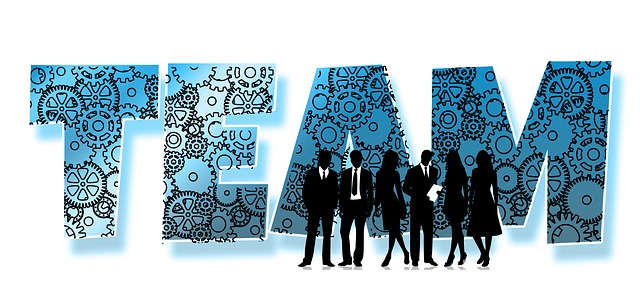Teamwork Remains Important, even in the Grasshopper Age
There is a lot of talk about the new economy, and how it has changed the meaning of teamwork. Even recruiting theorists are talking about how everything is changing quickly – making it a bad time to bond strongly to one employer. Freedom is sweet, and specialists appreciate it. So, finding the right full time employees can be tricky, and some businesses therefore buy services from independent specialists, who can quickly move between better opportunities.
But software development is a bit different. Let´s see, how different.
Grasshoppers or teams?
So, we have a dilemma: is it better to do things alone or with small teams? Freelancers or so-called “grasshoppers” are very loosely associated with the businesses they work with, and usually offer their skills piece by piece, rapidly changing their jobs and activities.
But a company with an agile team model can use small independent teams to change quickly, too, if environment needs it.
Of course, there is also the third, old-school, pyramid model, where commands are given from top down to employees. This is the classic hierarchical corporate model, and it can cause dissatisfaction for leaders, because it leaves less independence for workers.
So, what is the best solution then?
We have choice of three models: free independent grasshoppers, small agile teams or strong top leaders with compliant employees.
Let´s analyse all three possibilities.
So-called grasshoppers provide their services and are loosely connected with the company. They can leave quickly and find another client. This is a popular trend amongst millennials and the younger generation. Recruiting portal statistics show that almost 30% of employees in Estonia and some other European countries, change their workplace in a single year.
This is terrible by old school standards, where loyal and long-serving employees were the most important part of the workforce.
That´s not so any more. The sharing economy and virtual workplaces have changed everything.
But let´s think about it another way – if you are a “grasshopper” who sells skills piece by piece, you have much less value. You can be replaced by anyone anytime, who provides the same service but cheaper. No long bonds with a business, just a relationship based on price. In a free market of specialists, you can lose your earnings in an instant – you must be the very best specialist, for companies to want to keep you at any price. And sometimes it´s true, top specialists can afford it.
25 years of agile teamwork

At Uptime, we are not following this trend, and we have not followed it during our 25-year history, because the freelancer model does not work well in software development.
Why? Because smart, small teams are the best solution for doing something big. The team is the most valuable thing in an enterprise, you can´t replace it. If you find (as a specialist) a good, skilful team for your work, it´s secure for you, and delivers better results for the company, too.
Again, why? Because every team member has their own skills. They don´t need to do everything. It´s very simple. And there’s no need to follow old school commands from top (sometimes distant) leaders because small agile teams are independent and can set tasks themselves.
A good example from nature is a pack of wolves – perhaps not such a positive example for humans, but perfect for illustrating the best part of small teams. All members of the pack care for each other, share their skills and as a team, the pack can do much bigger tasks than a single wolf alone.
But of course, if you are, for example, a good writer, freelance might be the best solution – you can sell your work to different employers one by one. But you must be very good for this to work.
We can find good examples from sports, too

For example, the Icelandic football team includes a musician, a dentist, a producer and so on – occupations that have nothing to do with football at all. Separately, they are good specialists in their own field, but together they can form a team, that famously beat the English team in Euro 2016. That shows – a good team can do big things.
So, we are back in the IT business – this is a business which needs different skills and teamwork to deliver a Project. Software needs good coding skills, but not only that – you must know analytics, mathematics, design, semiotics and even user psychology.
Can you do all this alone? Probably not. For an IT company, the ideal is a team, where you can find all these specialists working together.
Google and Facebook do the same thing – they usually have 10-15 team members with the freedom to do almost anything. Some developed services will be closed quickly, but this is the side effect of experimenting in technology companies. Not all new ideas are good – but you have to test them to discover that. You must be flexible – and small teams are just that.
Uptime started with small teams 25 years ago, and surprisingly this model still works well. In the 90s there was some turbulence in Eastern European economies – everything changed extremely quickly and companies had to be as flexible as possible. With small agile teams, it was always possible.
There are a lot of different kind of tasks to be done in a team. One employee or freelancer just doesn’t have enough different skills to do it all alone. And to be lead a team, when the other members are good in their own field, is to be a “wise man”, it´s real honour.
Raimo Seero
Uptime, CTO
